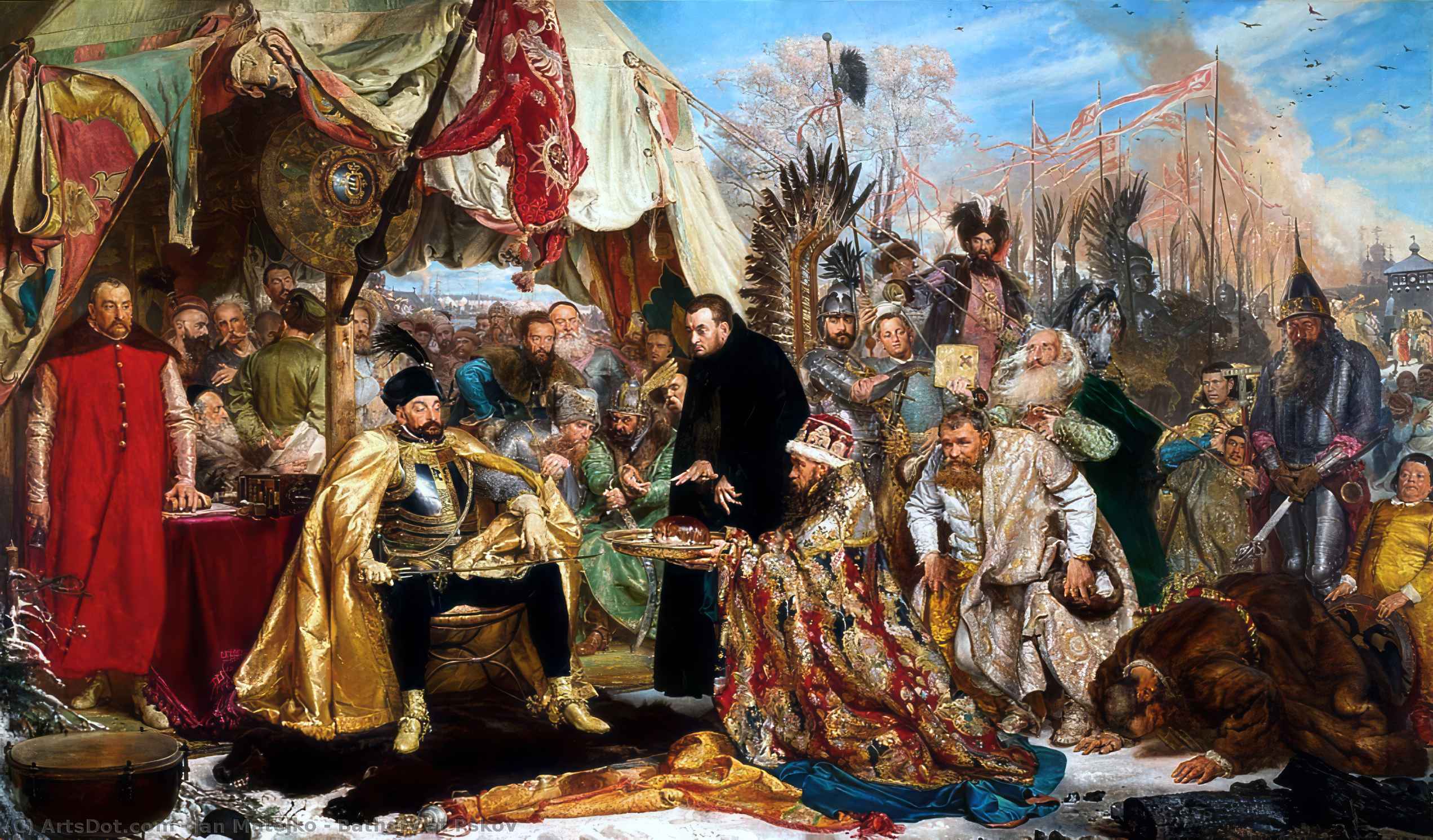Künstler: Jan Matejko
Stil: Romantik
Themen: russland krieger kriege berühmte menschen
Datum: 1872
Größe: 322 x 512 cm
Museum: Nicolaus Copernicus Museum (Frombork, Poland)
Technik: öl auf leinwand
während des livländischen krieges ( 1578-1582 ) , zwischen iwan dem schrecklichen von russland und stefan batory von der Polish-Lithuanian Commonwealth , die stadt wurde von den polnischen und litauischen streitkräften belagert . Die vereinte armee konnte die stadt nicht erobern , aber zwang russland, andere gebiete zurückzugeben und gewann livland . Die belagerung war der schauplatz dieses gemäldes . die belagerung von pskow aus polnischer sicht : batory in pskov , 1579 . gemälde von jan matejko in 1872 . Matejko's allegorische malerei illustriert das konzept des romantischen nationalismus : die moskauer sind als hommage an den polnischen könig vertreten , die siegreich erscheinen , obwohl pskow in wirklichkeit nie an die polen fiel , als der konflikt mit verhandlungen endete, bevor die belagerung abgeschlossen war .
Künstler |
|
|---|---|
Herunterladen |
|
Berechtigungen |
Frei für den nicht kommerziellen Gebrauch gestattet. Siehe unten. |
Jan Matejko – Meistgesehen Kunstwerke
|
This image (or other media file) is in the public domain because its copyright has expired. However - you may not use this image for commercial purposes and you may not alter the image or remove the watermark. This applies to the United States, Canada, the European Union and those countries with a copyright term of life of the author plus 70 years.
|















 Note that a few countries have copyright terms longer than 70 years: Mexico has 100 years, Colombia has 80 years, and Guatemala and Samoa have 75 years. This image may
not be in the public domain in these countries, which moreover do not implement the
Note that a few countries have copyright terms longer than 70 years: Mexico has 100 years, Colombia has 80 years, and Guatemala and Samoa have 75 years. This image may
not be in the public domain in these countries, which moreover do not implement the